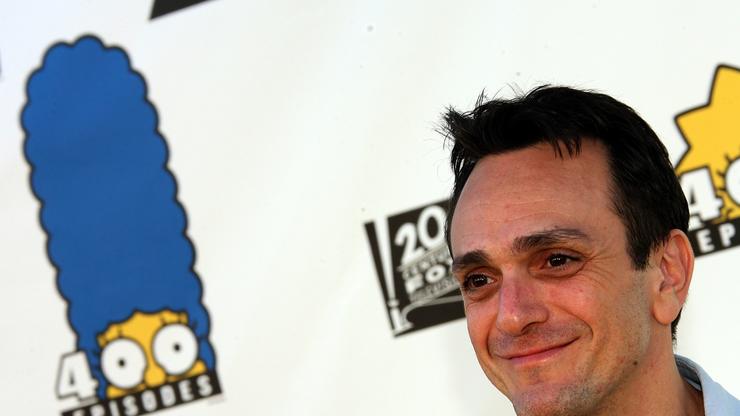Hank Azaria has officially announced that he will no longer be voicing the character, Apu Nahasapeemapetilon, an Indian Kwik-E-Mart owner on The Simpsons. Hank, who has voiced plenty of characters on the show since it debuted in 1989, revealed in an interview, “I won’t be doing the voice anymore, unless there’s someway to transition it or something. What they’re going to do with the character is their call. It’s up to them and they haven’t sorted it out yet.” However, he notes that the decision was somewhat unanimous. “All we’ve agreed on is I won’t do the voice anymore. We all made the decision together. We all agreed on it. We all feel like it’s the right thing and good about it.”
 Michael Nagle/Getty Images
Michael Nagle/Getty Images
Hank’s decision to no longer voice the controversial character has been a few years in the making now. After comedian Hari Kondabolu released the documentary, The Problem With Apu, in 2017, public outrage over the character’s allegedly racist depiction of Indian people rose immensely. The documentary explored how people of South Asian descent were impacted by having Apu, a character riddled with stereotypes, as their only form of representation on American television. Creator Matt Groenig spoke out about these complaints at the time, saying, “I’m proud of what we do on the show. And I think it’s a time in our culture where people love to pretend they’re offended.” The show went on to address the issue in a 2018 episode, which was met with even more criticism. When Lisa says to her mother, Marge, “something that started decades ago and was applauded and inoffensive is now politically incorrect. What can you do?” the camera pans over to a framed image of Apu on Lisa’s nightstand with the phrase “Don’t Have a Cow” written on top.
 Mike Coppola/Getty Images
Mike Coppola/Getty Images
Hank condemned the way that the show handled the whole ordeal, revealing that “It was a late addition that I saw right around the same time everybody else in America did, so I didn’t know it was going to be in it until I saw it. I think that if anybody came away from that segment thinking that they should lighten up or take a joke better or grow a thicker skin… that’s certainly not the way I feel about.” Instead, he sympathized with those who have been negatively affected by the character. “The idea that anybody, young or old, past or present, was bullied or teased based on the character of Apu, it just really makes me sad. It certainly was not my intention. I wanted to bring joy and laughter to people. And the idea that it’s brought pain and suffering in any way, that it’s used to marginalize people, it’s upsetting, genuinely.” He was even willing to step down from voicing the character back then, as he felt that “the most important thing is to listen to Indian people and their experience with it. I really want to see Indian, South Asian writers in the writers room…including how [Apu] is voiced or not voiced. I’m perfectly willing to step aside. It just feels like the right thing to do to me.”





